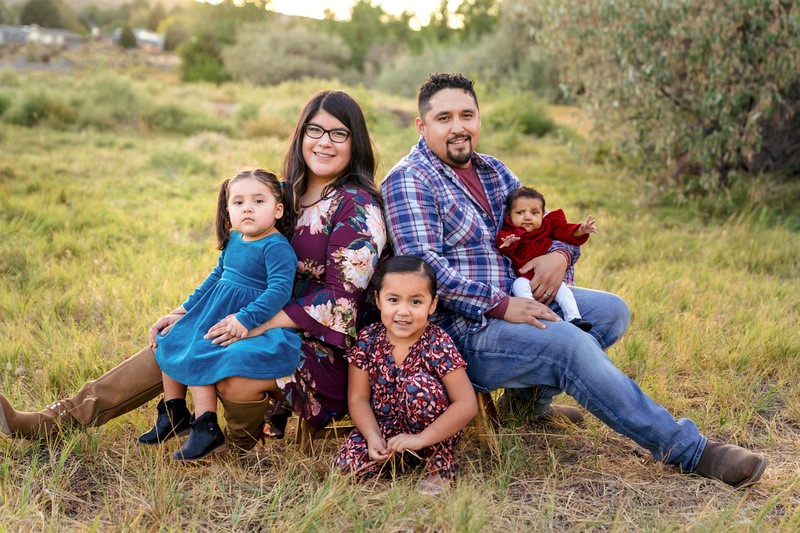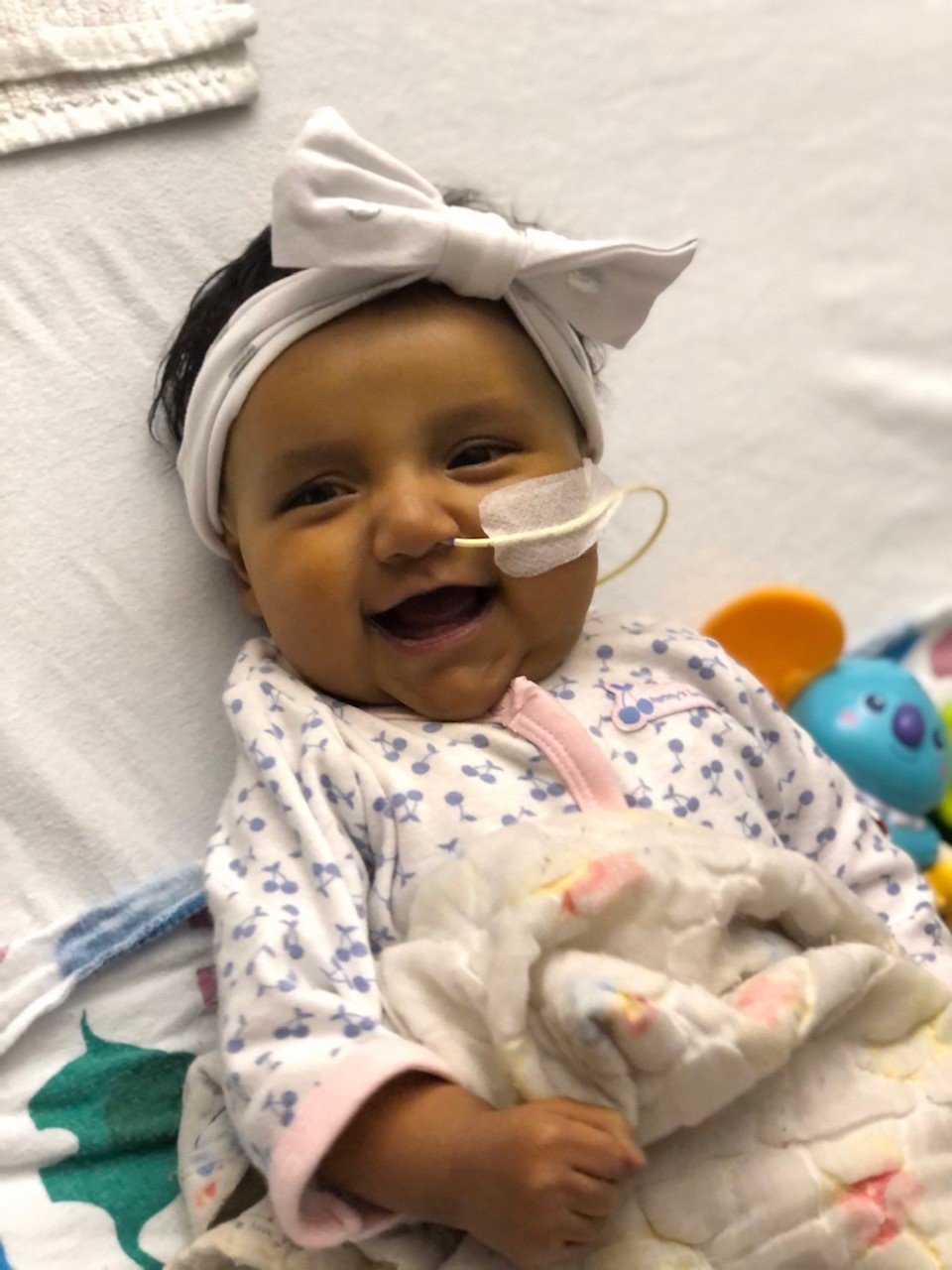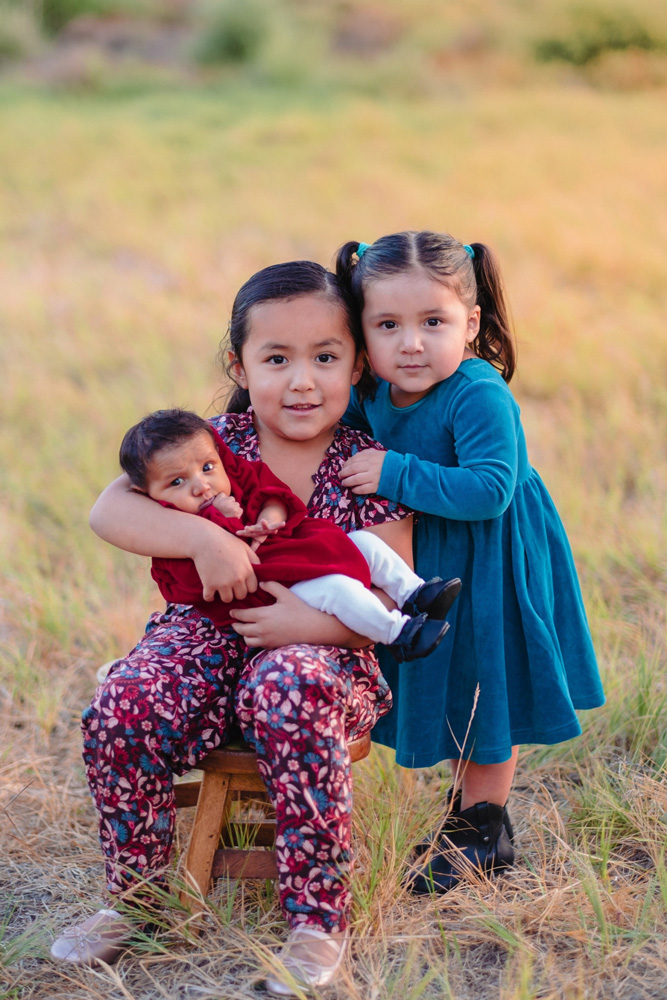Delila is not able to retain some vitamins because reduced bile flow to the small intestine (due to reduced number of bile ducts) causes problems with digesting fats and absorbing fat-soluble vitamins (vitamins A, D, E and K).
Valarie was sent home with many medications for Delila. “It’s a lot of trial and error because she has a hard time taking some of the vitamins and medicines. One day you think you have all the medicines down, but the next day she’s spitting up all the time. Sometimes you have to just throw your hands up in the air and say, ‘Today wasn’t perfect, but we’ll get back on it tomorrow.’”
In addition to its role in digestion, bile also helps remove toxic materials like excess cholesterol, bilirubin and waste from the body. Without sufficient bile flow, jaundice, pruritis (severe itching) and liver damage follow.
Pruritis, caused by reduced bile flow and the buildup of toxins under the skin, can be profoundly uncomfortable. Delila wears mittens to protect her itchy skin from her fingernails. Valarie has met families who have serious challenges with the itching; she feels the medication Delila takes for the pruritis is doing a reasonable job keeping her comfortable, for which she is thankful.
At 11 pounds, seven ounces, and nearly six months old, Delila has had trouble gaining weight. In addition to Alagille syndrome causing slow weight gain, babies with heart conditions must work extra hard to drink. In early December, Valarie and her husband learned how to give her milk directly into her stomach through a feeding pump — 4 ounce feedings, every 4 hours, 24 hours a day.
“I’ve never been so organized in my life,” said Valarie. She described how every ounce and every dose is documented. The family recently returned from seeing Delila’s Alagille and heart specialists at Stanford Children’s Health. Getting on an airplane wasn’t advised because of her oxygen levels so they took a road trip — a feat of logistical planning for Delila as well as childcare for the other two kids. Valarie is grateful for a tremendously supportive family.
Give yourself a little grace
Valarie’s advice to parents with little ones who have serious medical conditions: Take it one day at a time. She described how she used to beat herself up when she was too exhausted to respond immediately to her phone’s every-four-hour reminder for feedings.
“It’s not like everything is going to be perfect. Some days, we’re not going to get all 24 ounces in her, but she is growing; she is gaining weight. The gastroenterologist might not be happy with the numbers, but her weight is going up every week. Just give yourself a little grace.”


